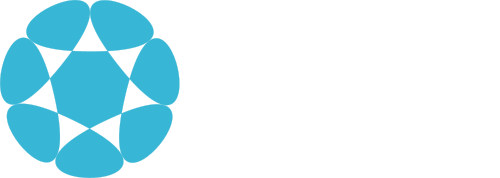IBNLP members work in a business context, with professional people who want to achieve improved relationships and results in their working lives. The standards that they work to are defined by this context.
This is a distinct approach to that taken by the many NLP associations whose approach and certification framework is based on the therapeutic applications of NLP. Therefore, the standards and requirements for therapeutic applications cannot apply to the business context. For example, psychology qualifications are not required, because IBNLP members are not engaged in psychotherapy. IBNLP's requirements for training duration are shorter, for two reasons; firstly, because of the exclusion of therapeutic activities, and secondly because of the practicalities of delivering training into the business environment. IBNLP members have significant business experience outside of training and coaching, and this is the foundation for their NLP skills, which is far more appropriate for the business clients that they serve.
Originally, only NLP Practitioner level training existed, in which Bandler and Grinder trained psychotherapists to use the NLP techniques that they had modelled whilst developing NLP. Practitioner training is reasonably standardised throughout the world. Master Practitioner training was added much later, and there is no standard content for this level of training. Many NLP associations around the world impose standards based on therapeutic work alone, and these standards are not appropriate for the business applications of NLP. 'Recognised' NLP Practitioner training today varies in duration from 7 days to over 30 days. However, in some countries, trainers are offering 2 day Practitioner courses, and some trainers are offering online courses which lead to Practitioner certification. Organisations such as the NLP Leadership Summit have distanced themselves from such short courses, but the reality is that no-one has the authority to prevent anyone from calling themselves a NLP Trainer and running any quality of training that they think appropriate.
It is important to note that NLP is not a protected trademark, and the NLP body of knowledge is not protected or owned by any organisation. Therefore, the words 'certification' and 'licensing' have no significance in the context of NLP. Students will typically receive a certificate and a license to use a particular training organisation's logo, but they are not receiving any accreditation or license to practice, and this terminology is therefore misleading for students. Some NLP associations claim higher status or credibility than others, but in truth, once the Society of NLP disbanded in the 1980s, hundreds of associations have been created and none has any special status conferred within the field. NLP has evolved into a movement, rather than being a self-contained and protected entity. It is certainly not recognised as a profession. This has led to significant credibility issues, and in response, some organisations have responded by imposing unrealistic standards for students in terms of duration of study.
For someone to qualify and be licensed as a counsellor or psychotherapist requires years of study with supervised practice, and this raises a significant barrier to entry which means that many students never reach the position where they can practice their profession. For some, the cost is prohibitive, for others the time required is a barrier. However, the purpose of these requirements is to ensure the highest quality standards for therapists who are working with members of the public on a wide range of sensitive and challenging personal issues.
NLP was never intended to be a profession in its own right, it was created and packaged as a set of techniques to be used by people who were already psychotherapists. Today, NLP is marketed to all kinds of people who do not have the same background of rigorous training and supervision as psychotherapists, and in fact most people who enrol in NLP training have no relevant prior training at all. Longer courses are therefore more appropriate for students who are new to the field and who are planning on working in complementary disciplines such as alternative medicine or hypnotherapy.
When working in business, IBNLP members do not engage in any form of counselling or psychotherapy, and if any mental health or psychological issues do arise, the IBNLP member will always refer the client to a suitable organisation such as the BACP or UKCP. Furthermore, IBNLP members have significant experience and training in business disciplines such as leadership, management, HR, coaching, project management, sales, marketing or finance. These valuable business skills form the basis for their work with NLP. The business experience of IBNLP members is the cornerstone of the standards to which they are held accountable.
The therapeutic techniques which are associated with NLP are the results of NLP, they are not NLP itself. NLP, strictly speaking, is the method by which unconscious skills are modelled from an exemplar and then packaged in a learning process that can transfer those skills to others. Therefore, a very clear distinction must be made between 'NLP' and 'NLP Practitioner'. When many associations talk about their high standards for NLP training, what they really mean is NLP Practitioner training, which comprises the various Practitioner level techniques of NLP, and focuses on personal change, such as 'curing' phobias and anxiety.
When NLP is used to model business excellence, the result is a set of techniques for developing high performance within professional relationships and environments. This is the focus area of the IBNLP. NLP Business Practitioner training is very different to generic or therapeutic NLP Practitioner training, both in content and in delivery, although both share the same underlying syllabus of techniques.
Since NLP is a methodology for modelling excellence, the IBNLP encourages members to model high performers in business and to publish their research to further develop the body of knowledge of business NLP education.
